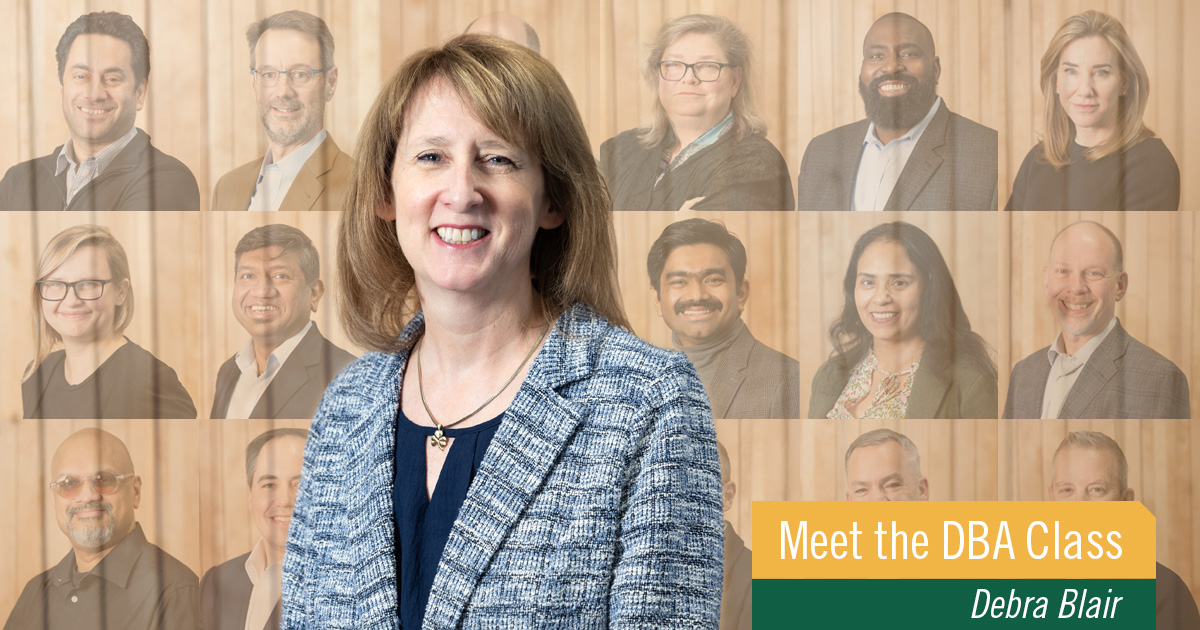She Wanted to Help. Becoming a Farmer Wasn’t What She Expected.
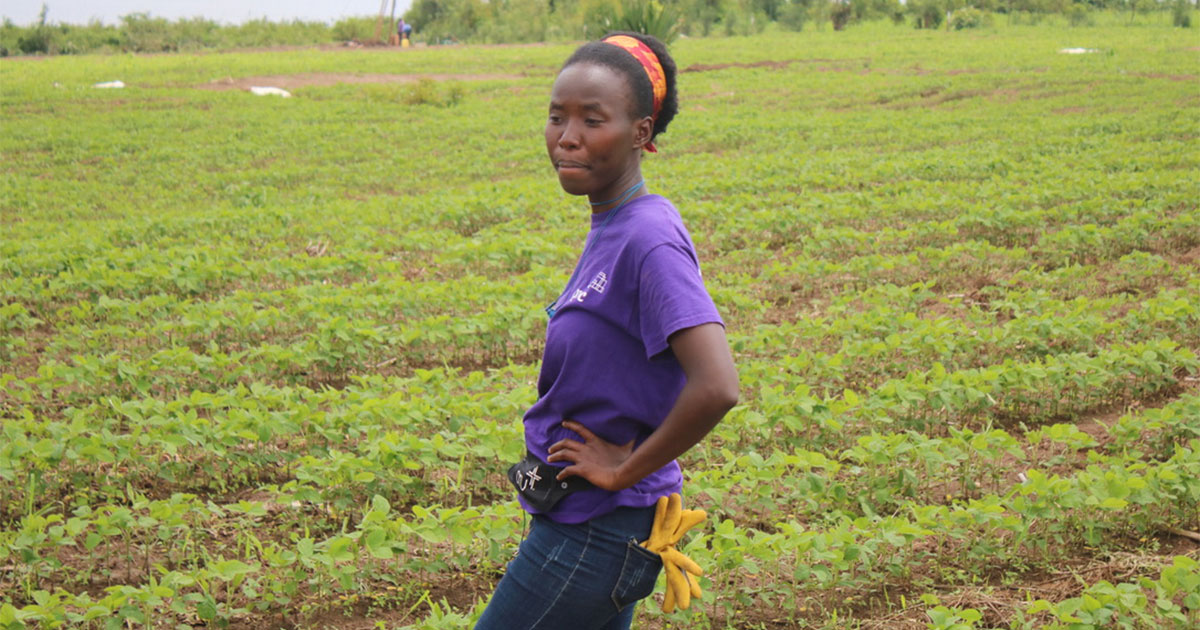
When Rosine Ndayishimiye ’18 returned to her native Rwanda, and found herself working on a farm, she marveled at how the twists and turns in life can lead you to unexpected places. “I never thought in my life I would do agriculture. I didn’t see that coming,” she says. “The only relationship I had with farming was that I ate.”
And yet in the summer of 2018, not long after graduating from Babson College, she arrived at Nova Farm, a 15-acre parcel located in Kayonza District in eastern Rwanda. Knowing that the farm could make an outsized impact on her beloved homeland, Ndayishimiye had agreed to help run it, despite not knowing anything about agriculture at the time. Even the most rudimentary terms were lost on her. “I had to learn the language of farming,” she says. “I had to start from the basics.”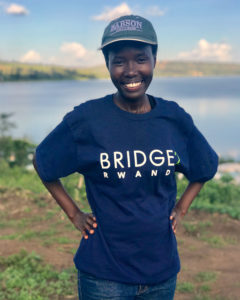
She wasn’t worried. Babson may be not be an agricultural school, but it taught her an entrepreneurial mindset, an innovating and improvising way of thinking that prepared her well for any challenge. “I wasn’t afraid,” she says. “Babson trains entrepreneurs of all kinds. You can be a problem solver in any industry.”
More than a year later, Nova Farm is thriving, growing much-needed grain to produce affordable feed for farm animals. It’s also serving to train local farmers on improved agricultural methods. With the farm’s success, Ndayishimiye brings a dream, one that she has long harbored, to fruition.
Eyes Opened
Ndayishimiye’s entrepreneurial path to Babson, and ultimately to Nova Farm, began in high school. That’s when she and 10 of her friends, all members of their school’s entrepreneurship club, started a fruit-selling business.
They didn’t take the business too seriously, at least at first. They were just curious about entrepreneurship and started the venture on a lark. But then that business grew, and Ndayishimiye and her friends saw how much people depended on their avocados and bananas. Eventually, the business was so busy that they had to hire an employee, and the friends saw how she used that job to support herself and her family.
“I wasn’t afraid. Babson trains entrepreneurs of all kinds. You can be a problem solver in any industry.”
Rosine Ndayishimiye ’18
“It made me realize how big of an impact this business was having,” Ndayishimiye says. “It was the first thing that opened my eyes to the power of entrepreneurship.”
Eager to learn more about entrepreneurship, she came to Babson as a Global Scholar. She dreamed of one day bringing her newly acquired entrepreneurial skills back to Rwanda to help make a difference of some kind. “I wanted to do something to move my country forward,” she says.
Where I Need to Be
While at Babson, Ndayishimiye came to realize that agriculture was an area where she could create a large impact in Rwanda. More than 70% of Rwandans farm, but most of that is subsistence farming on small parcels of land. The average Rwandan farm is less than an acre in size. “If we can increase productivity in this sector, it can affect many lives,” she says. “We can create more wealth and improvements in our economy.”
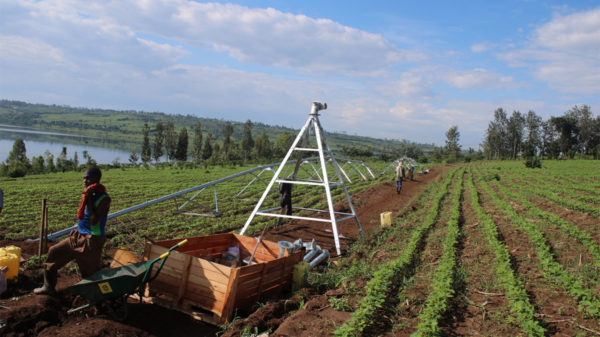 Of course, having an idea to work in farming is one thing. Making it a reality is quite another. “I didn’t know what to do or how to start,” Ndayishimiye says. “I didn’t know how to farm. I didn’t have land. I didn’t have money.”
Of course, having an idea to work in farming is one thing. Making it a reality is quite another. “I didn’t know what to do or how to start,” Ndayishimiye says. “I didn’t know how to farm. I didn’t have land. I didn’t have money.”
That’s when she received an unexpected phone call from Bridge2Rwanda. Ndayishimiye previously had received support from the nonprofit organization, which works to develop students into leaders in Rwanda and East Africa, and it now had a proposition for her. The organization owned a farm, and it wanted to know if Ndayishimiye would manage it.
Ndayishimiye said yes. “This is where I need to be,” she thought.
Becoming a Farmer
Ndayishimiye has since grown to know agriculture, learning from fellow farmers and the trainings she has attended. Some people questioned why, as a college graduate, she decided on becoming a farmer, which is typically an occupation for the uneducated and poor in Rwanda. 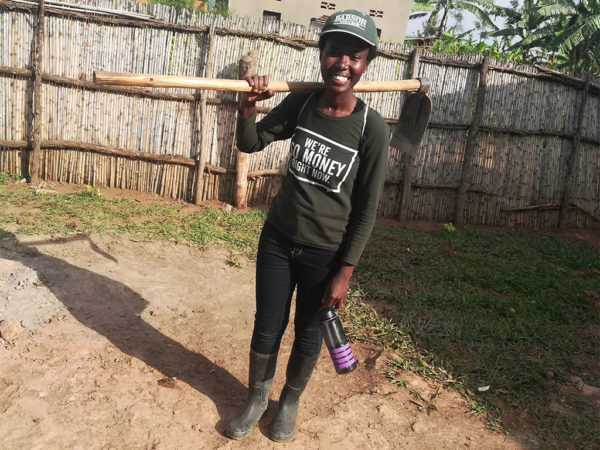
But Ndayishimiye set out to make a difference, and she has. The grain the farm produces, which is turned into animal feed, helps to lower the price of meat, a vital source of protein that many Rwandans rarely eat because it’s too expensive. Furthermore, she travels the country training farmers on how to better manage crops, preserve soil, and increase yields, the student of agriculture having now become the teacher.
“I am really excited to be part of the agricultural transformation happening in Rwanda,” she says. “I can’t wait to see what will happen in the future.”



